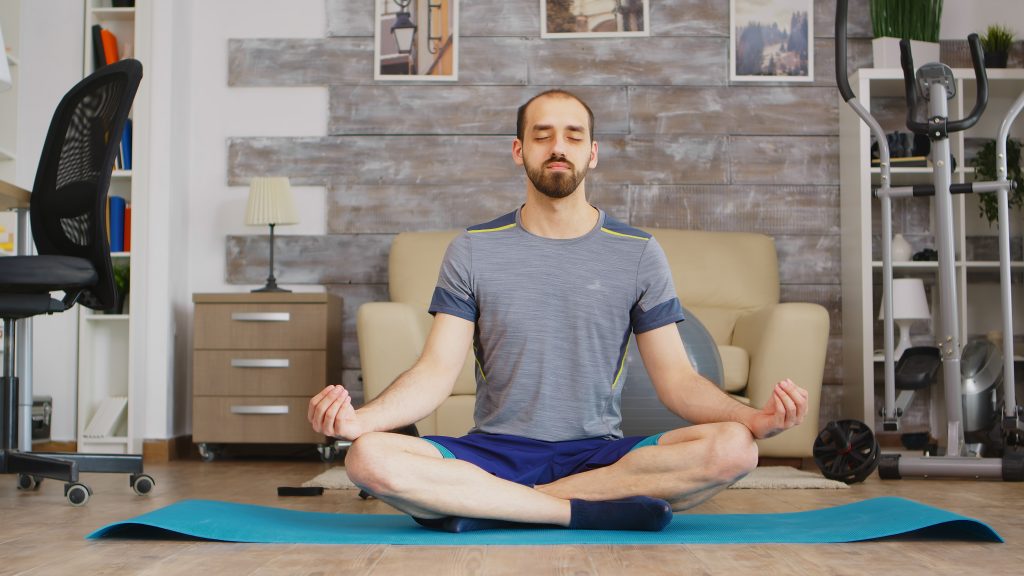
We all want to feel our best, both physically and mentally. But how can we make sure that our daily lives are providing us with the necessary balance between rest, relaxation and productivity? The answer is mindfulness – a practice of intentionally focusing on the present moment with kindness and acceptance. Practicing mindfulness every day can bring a plethora of benefits to your life, from improved mental health to better physical wellbeing.
This article will explore why practicing mindfulness every day is good for you, different types of meditation, its health benefits, and how to get started on your own journey towards greater wellness. So let’s take a few moments out of our busy schedules and recognize the power of being present in each moment – today could be a very mindful day!
Why Practicing Mindfulness Every Day is Good for YOU?
Mindfulness has become increasingly popular in recent years due to its many well-documented health benefits. Practicing mindfulness every day can help you reduce stress, improve your mental wellbeing, and even increase feelings of contentment.
Mindfulness is based on the idea that our thoughts and emotions should be observed rather than judged, allowing us to gain insight into our own inner world. By engaging in daily practices such as mindful breathing, body scans, and meditation sessions, we can develop a greater awareness of our physical bodies and emotional states. This helps us to respond more effectively to life’s challenges and cultivate an appreciation for what is happening in the present moment.
Research has shown that practicing mindfulness on a regular basis can have a positive impact on a wide range of psychological symptoms—including depression, anxiety, PTSD, and OCD—as well as physical conditions such as blood pressure and heart rate. Furthermore, studies have found that an eight-week program of mindfulness-based stress reduction or mindfulness-based cognitive therapy can lead to improved quality of life for those who participate.

Types of Mindfulness Meditation
Mindfulness meditation is a powerful practice that involves becoming aware of one’s thoughts and feelings in the present moment. There are several different types of mindfulness meditation, each with its own unique benefits. Mindful breathing is a common technique that involves focusing on your breath as it moves in and out of your body. This type of meditation can help reduce stress, improve concentration, and bring a greater sense of calm to your daily life. Body scans are another form of mindfulness meditation which involve slowly scanning through your body while paying attention to any sensations or emotions that arise. This type of meditation can help increase body awareness and bring about feelings of relaxation. Finally, guided meditations involve listening to an audio recording which guides you through a series of visualizations designed to bring about feelings of peace and contentment. No matter what type of mindfulness meditation you choose, regular practice can provide many wonderful health benefits.
Mindfulness-Based Stress Reduction (MBSR)
Mindfulness-Based Stress Reduction (MBSR) is an evidence-based program that combines mindfulness practices with cognitive and behavioral therapy to help individuals manage stress, pain, and medical conditions. The MBSR program typically consists of an eight-week program which involves instruction in mindful meditation, yoga, and other relaxation techniques. Studies have shown that regular practice of MBSR can lead to significant improvements in physical health such as reduced blood pressure and heart rate, as well as psychological health such as improved quality of life and reduced symptoms of depression.
Additionally, research has found that mindfulness practices can be beneficial for those suffering from post-traumatic stress disorder and other mental health issues. Through its wide range of positive impacts on physical and psychological wellbeing, MBSR is becoming increasingly popular among individuals looking to bring a greater sense of balance into their daily lives.
Mindfulness-Based Cognitive Therapy (MBCT)
Mindfulness-Based Cognitive Therapy (MBCT) is a form of therapy that combines elements of cognitive behavioral therapy with mindfulness meditation. This type of therapy helps individuals identify and challenge the negative thought patterns that can fuel depression, anxiety, and stress. Through MBCT, individuals learn to become aware of their thoughts and emotions in a nonjudgmental manner and to accept them without judgment or criticism. Additionally, MBCT teaches individuals how to recognize when such thoughts become overwhelming and to redirect focus onto more positive activities.
Studies have found that regular practice of MBCT can lead to decreased levels of anxiety, improved mood states, increased self-compassion, and an overall improvement in quality of life. For those looking to find greater balance in their lives and address psychological issues such as depression or anxiety, MBCT may be an effective treatment option.
Body Scan Meditation
Body Scan Meditation is a type of formal meditation that involves focusing one’s attention on the physical sensations in the body. During a body scan practice, individuals are encouraged to bring their awareness to each area of their body in a systematic way, allowing for an increased sense of self-awareness and relaxation. Research has found that practicing body scan meditation can have positive impacts on both mental and physical health. It has been found to reduce symptoms of anxiety, depression, and post-traumatic stress disorder as well as decrease blood pressure, heart rate, and muscle tension.
Furthermore, it can also help to improve overall mood states and increase feelings of wellbeing. With regular practice, many individuals have reported feeling more grounded in their daily lives and connected with their bodies. For those looking to add a mindfulness practice into their daily routine, Body Scan Meditation may be an ideal option.
Other Types of Meditation
Other types of meditation such as mindfulness-based stress reduction (MBSR), mindfulness-based cognitive therapy (MBCT) and behavioral therapy can be very beneficial to those looking to incorporate mindfulness into their lives. MBSR is a program that combines yoga and meditation practices to help individuals learn how to respond more effectively to stressful situations. MBCT is a type of cognitive therapy designed for those struggling with recurrent depression or anxiety. Furthermore, Behavioral Therapy focuses on changing patterns of behavior in order to improve overall quality of life.
Research has found that all three of these types of meditation can have positive impacts on psychological symptoms, depression, anxiety, stress levels and overall wellbeing. Additionally, they can also help individuals cultivate body awareness which can lead to improved self-confidence and self-esteem. For those looking for an effective way to reduce stress, increase relaxation and improve their quality of life, these types of meditation offer a wide range of benefits that are worth exploring further through classes or an eight-week program.
Health Benefits of Practicing Mindfulness Every Day
Mindfulness is a practice of focusing on the present moment with an attitude of acceptance, non-judgement and awareness. Research has found that regularly practicing mindfulness can have numerous health benefits. Firstly, it can help to regulate blood pressure and heart rate. Secondly, it has been shown to reduce symptoms of depression and post-traumatic stress disorder. Thirdly, it can help individuals cope with stress more effectively and improve their overall wellbeing. Finally, it can cultivate body awareness which leads to increased self-confidence and self-esteem.
The practice of mindfulness can be done through formal meditation such as mindfulness meditation or MBSR (mindfulness based stress reduction) or informal practices such as mindful eating or walking meditations. A daily practice of 10-15 minutes is recommended for those looking to reap the full benefits mindfulness has to offer. Additionally, for those looking for guidance in their practice, there are plenty of books, classes and online courses available that focus on various types of meditation techniques and the benefits they provide.
Overall, regular practice of mindfulness offers a variety of physical and mental health benefits which make it well worth incorporating into our daily lives if we want to lead healthier and happier lives.
Lower Blood Pressure and Heart Rate
Regular practice of mindfulness is known to lower blood pressure and heart rate. This is because it promotes relaxation, reduces stress and anxiety levels, encourages healthier lifestyle behaviors, and helps individuals develop better coping strategies. Studies have shown that after just eight weeks of a mindfulness-based program, individuals experienced a significant reduction in both systolic blood pressure and diastolic blood pressure as well as their resting heart rate. Furthermore, this type of meditation can help with hypertension related conditions such as coronary artery disease and stroke.
In addition to the physical benefits of mindfulness on lowering blood pressure and heart rate, it has also been found to improve overall mental health by reducing psychological symptoms such as depression or anxiety. By learning how to become aware of the present moment without judgement or reactivity, people can create more positive relationships with themselves and others which leads to improved quality of life.
So if you are looking for a way to reduce your risk factors for cardiovascular disease while also improving your overall wellbeing, then consider incorporating mindfulness into your daily routine. Whether it’s a body scan exercise or a full meditation session, there is sure to be something that fits into your lifestyle and will help you reap the amazing benefits that this practice has to offer!
Improve Quality of Life and Psychological Symptoms
Mindfulness is a practice that can greatly improve the quality of life and reduce psychological symptoms such as depression or anxiety. By learning how to become aware of the present moment without judgement or reactivity, individuals can create more positive relationships with themselves and others. This has been found to improve overall mental health by reducing stress and anxiety levels, encouraging healthier lifestyle behaviors and helping individuals develop better coping strategies.
Notably, mindfulness-based practices have shown to be effective in treating various psychological issues such as post-traumatic stress disorder (PTSD) and major depressive disorder (MDD). Studies have shown that after an eight-week program incorporating mindfulness-based stress reduction, there was a significant decrease in symptoms of both PTSD and MDD.
In addition to these psychological benefits, mindfulness also has physical benefits. It is known to lower blood pressure and heart rate due to its relaxation promoting effects. Furthermore, this type of meditation can help with hypertension related conditions such as coronary artery disease and stroke.
For those looking for ways to improve their quality of life or reduce the symptoms of depression or anxiety, mindfulness is an effective solution that can be incorporated into daily lives easily through formal meditation or simply mindful body awareness practices. There are many types of meditation available including mindfulness classes which offer guidance on how best practice this technique so it’s worth exploring what options are out there!
Reduce Symptoms of Depression and Anxiety
Mindfulness is a practice that has been proven to be an effective way of reducing symptoms of depression and anxiety. It is a type of meditation that focuses on being aware of the present moment without judgment or reactivity. By doing this, individuals can create more positive relationships with themselves and others as well as improve overall mental health by reducing stress and anxiety levels. Studies have found that after an eight-week program incorporating mindfulness-based stress reduction, there was a significant decrease in symptoms of both post-traumatic stress disorder (PTSD) and major depressive disorder (MDD).
Other benefits include physical benefits such as lowering blood pressure and heart rate due to its relaxation promoting effects. There are many types of meditation which can be used to practice mindfulness including formal meditation sessions or simple body awareness practices. For those looking for ways to reduce their symptoms of depression and anxiety, mindfulness is an effective solution worth exploring!
Help with Post-Traumatic Stress Disorder (PTSD)
Post-traumatic Stress Disorder (PTSD) is a condition that affects millions of people around the world. It can be caused by a traumatic event in one’s life, such as combat, natural disasters, or sexual assault. Symptoms of PTSD can include flashbacks, nightmares, difficulty concentrating, and extreme anxiety.
Fortunately, mindfulness practices have been shown to be effective in helping those suffering from PTSD cope with their symptoms. Mindfulness-based cognitive therapy has been found to reduce intrusive memories and improve emotional regulation in those with PTSD. Mindfulness practices like daily meditation classes or body scans can help those experiencing PTSD become more aware of their thoughts and emotions and learn how to manage them in a healthy way. In addition to these practices, participating in psychotherapy treatment tailored specifically for PTSD can further help individuals manage their symptoms and improve their quality of life.
The practice of mindfulness can provide great benefit to those coping with the effects of PTSD by helping them gain insight into their psychological symptoms while also providing a wide range of physical benefits as well. With regular practice and dedication, individuals struggling with PTSD can experience positive changes in their lives and better manage their symptoms over time.
How to Start a Daily Practice
Starting a daily practice of mindfulness can help individuals cultivate greater peace, joy, and awareness in their lives. Mindfulness is an ancient practice that involves focusing on the present moment and paying close attention to our thoughts, feelings, and body sensations without judgment. Practicing mindfulness can have a profound impact on our physical and mental health.
Making Time for Your Practice
Making time for your mindfulness practice can be challenging, especially when facing a full schedule. However, with mindful effort and dedication, it is possible to make room for regular practice. First, prioritize the time you spend on your practice by recognizing that it is just as important as any other activity. Writing down your practice in an agenda or calendar will help to solidify this commitment and make sure it gets done.
Next, break up your practice into manageable blocks of time. Even 10-15 minutes a day can make a tremendous difference in the quality of life. If it’s difficult to find one large block of uninterrupted time each day, try breaking up your meditation session into smaller parts throughout the day; even 5 minutes here and there can add up!
Finally, create an environment that is conducive to practice by removing distractions such as phones and televisions and replacing them with calming items like candles or incense. Doing so will help reduce mental clutter and allow you to focus on being mindful during your mediation session. Making time for mindfulness practices is not only beneficial but also essential for living a healthier lifestyle.
Finding the Right Type of Meditation
When it comes to finding the right type of meditation for you, there are many options available. The most common type of formal meditation is mindfulness-based stress reduction, which focuses on bringing awareness to one’s present moment experience. Mindfulness-based cognitive therapy is a type of behavior therapy that combines traditional cognitive behavioral techniques with mindfulness practices. Another popular type of meditation is body scan, which helps to increase body awareness and can be used to reduce physical tension and stress. In addition, there are also various types of informal meditations such as walking or sitting meditations that can be done almost anywhere at any time.
No matter what type of meditation you choose, it’s important to find one that works best for you and your lifestyle. Consider factors like how often you will have time to practice, where you feel most comfortable meditating and the goals you hope to achieve through your practice. Before beginning any form of meditation, it is recommended that you consult a qualified professional who can provide guidance in choosing the right practice for your needs. With dedication and regular practice, you can soon begin reaping the benefits that come from mindfulness meditation!
Taking Classes or Joining Groups
Taking classes or joining groups to practice meditation can be a great way to get started with mindfulness. With guidance from an experienced teacher, you can learn the basics of meditation and how to incorporate it into your daily life. In addition, being part of a larger group setting can help to create a sense of community and support that is important for long-term success.
Classes and groups also provide a safe space for learning, as well as an opportunity to ask questions and receive feedback from the instructor. Furthermore, classes may be able to offer more advanced techniques than what you could learn on your own or through online resources. Finally, many classes or groups are offered at different levels so you can find one that fits your needs and interests best.
No matter which option you choose, taking classes or joining groups for meditation can be extremely beneficial in helping you develop the skills necessary for successful mindfulness practice in your daily life.
Establishing a Regular Practice Routine
Establishing a regular practice routine is key to developing and maintaining mindfulness in our daily lives. Mindfulness meditation can be practiced for just a few minutes each day or for much longer sessions if desired. It is important to find the right balance between formal meditation sessions and informal activities that bring us into the present moment such as body scans, walking, and eating.
Mindful activities should also be tailored to suit individual needs and interests. For instance, some people may prefer to focus on the breath while others may choose to pay attention to their body or emotions. Additionally, it is important to allow yourself flexibility within your practice so that you don’t become too rigid or attached to any particular routine.
Finally, consistency is key when establishing a regular practice routine. Even if you only have five minutes per day, setting aside this time every day will make a big difference in how mindful you are in your daily life. Doing something as simple as taking a few mindful breaths before starting your day can help ground you and set the tone for the rest of your day.
Tips for Getting Started and Staying Motivated
Getting started with a mindfulness practice can seem daunting and overwhelming, but it doesn’t have to be. There are numerous tips and techniques for getting started and staying motivated in order to make mindfulness an integral part of our daily lives.
First, start small. Begin with just 5-10 minutes of mindful practice per day, or even just a few mindful breaths each morning. This will help build consistency and establish the habit of being present in the moment.
Second, create a space that is conducive to your practice. Find somewhere comfortable where you won’t be distracted or disturbed by noise or other people. A dedicated area for your practice can also help to foster feelings of relaxation and focus.
Third, set realistic goals for yourself and be flexible if needed. Don’t put too much pressure on yourself; instead be willing to adjust your goals according to your own needs and capabilities on any given day.
Finally, remember that no two days are the same—what works one day may not work the next—so don’t be discouraged if you feel like you’re not making progress right away. With patience and dedication, developing a regular mindfulness practice can become an enjoyable part of our day-to-day lives.

Conclusion
Mindfulness is a powerful practice that can have a positive impact on our physical, mental, and emotional health. Through the daily practice of mindfulness-based techniques such as mindful breathing, body scan exercises, and meditation, we can gain greater control over our emotions and reactions to stressors. Mindfulness has been used to successfully address a wide range of issues including anxiety, depression, post-traumatic stress disorder, and chronic pain. Furthermore, research has shown that mindfulness practices can reduce levels of stress hormones in the body and lower blood pressure and heart rate. With regular practice, mindfulness can provide us with an enhanced sense of wellbeing and improved quality of life.







